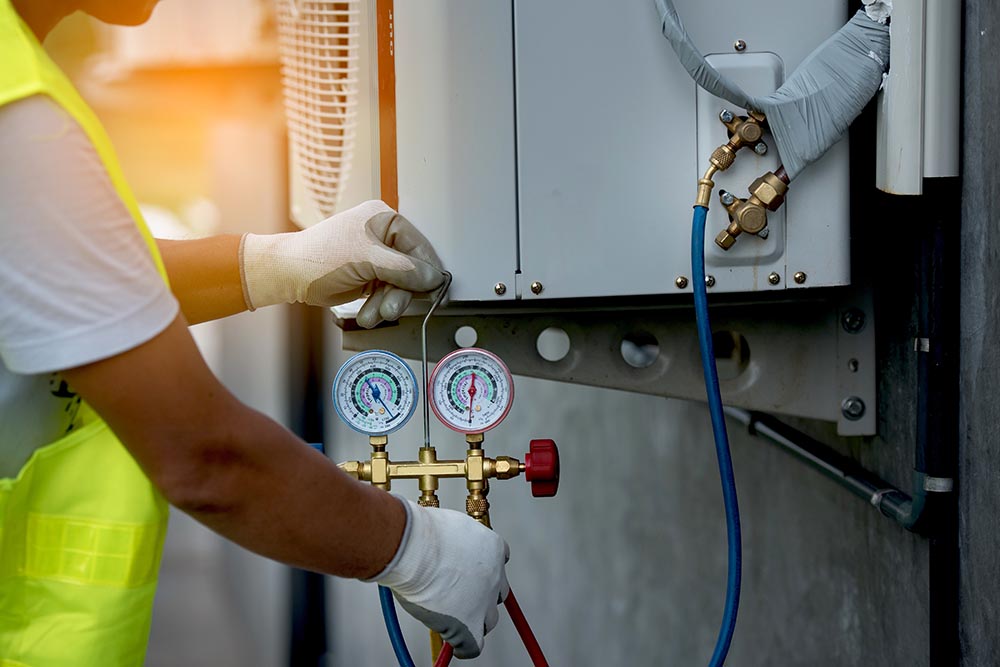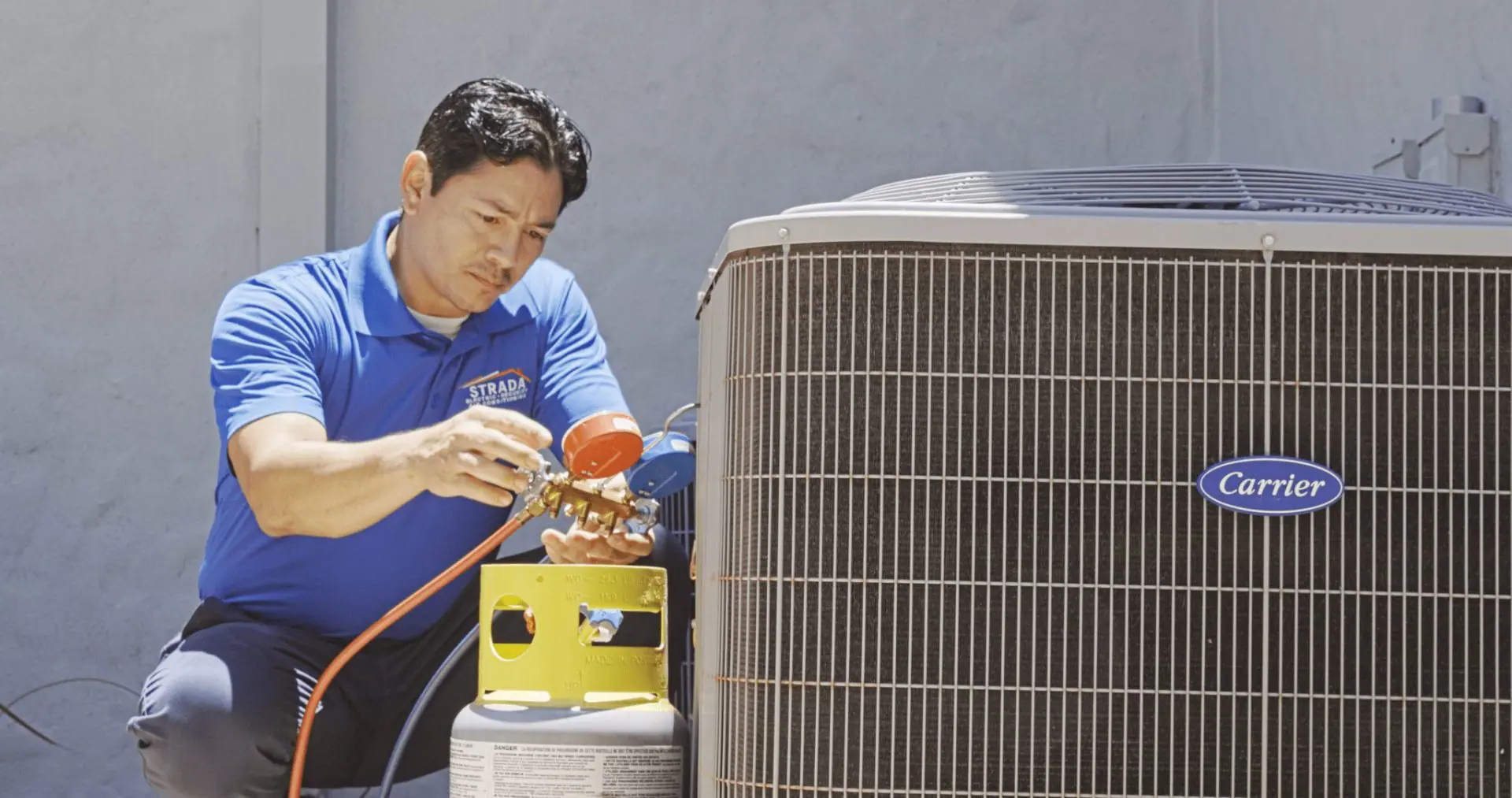Upgrade Tips to Make the Most of Your New furnace replacement
Upgrade Tips to Make the Most of Your New furnace replacement
Blog Article
Choosing Between a Warmth Pump and Heater: Trick Considerations for Your Heating And Cooling Requirements
When reviewing home heating alternatives for cooling and heating requires, the choice in between a warm pump and a heating system can be complicated. Each system uses unique benefits customized to details environments and power effectiveness goals. Comprehending these differences is crucial for making an enlightened selection. Secret aspects such as setup costs and ecological influence better make complex the selection process. Which option truly straightens with one's convenience and sustainability preferences? The following areas will discover these considerations thoroughly.
Understanding Heat Pumps: Exactly How They Work and Their Benefits
While numerous homeowners consider different heating alternatives, recognizing exactly how heatpump feature and their advantages can greatly affect their decision. Warmth pumps operate by moving warm instead of producing it. In the winter season, they extract warmth from the outside air or ground and move it inside your home, while in the summer, they reverse this procedure, cooling down the home by getting rid of heat outside. This double functionality makes them functional for year-round climate control.One of the main advantages of heatpump is their power efficiency. They utilize considerably less electrical power compared to conventional heater, potentially causing lower utility expenses (furnace replacement). In addition, heat pumps have a smaller sized carbon impact, making them an environmentally pleasant selection. They also call for less maintenance than traditional systems, adding to long-term cost savings. Generally, recognizing the mechanics and advantages of heatpump can help property owners make notified choices concerning their home heating and cooling down demands
Discovering Furnaces: Types, Operation, and Advantages
Heaters come in various kinds, consisting of gas, electrical, and oil versions, each with distinctive functional mechanisms. Understanding these distinctions is necessary, as they affect performance and home heating efficiency. In addition, heaters supply countless advantages, such as regular warm outcome and dependability in colder environments.
Kinds of Heaters
Heating unit can vary considerably in layout and procedure, with heating systems being a prominent choice amongst home owners. There are a number of kinds of heaters, each using different gas resources and innovations. Gas furnaces prevail, leveraging gas to generate warm effectively. Electric furnaces, on the various other hand, utilize electrical resistance to produce warmth, frequently favored for their straightforward installment. Oil heaters, while less common, work in areas with restricted gas accessibility (heat pump service). Furthermore, condensing furnaces take full advantage of energy efficiency by recycling and recording exhaust gases. Each kind runs through a system of warm exchangers and ductwork to disperse cozy air throughout a home. Understanding the distinctions in between these heater kinds is crucial for notified cooling and heating decisions
Advantages of Heating systems
For house owners seeking dependable heat during cool months, the advantages of heaters are considerable. Heaters offer constant heating, making certain even temperature levels throughout the home. They are specifically reliable in extreme cold, often outshining heatpump in frigid problems. Numerous kinds, consisting of gas, electric, and oil heaters, provide flexibility to fulfill diverse demands and preferences.Furnaces additionally have a tendency to have lower preliminary installment prices contrasted to heatpump, making them a more easily accessible choice for many. Their durable style adds to a much longer life expectancy, with numerous units lasting over 15 years with proper maintenance. Additionally, contemporary furnaces are usually geared up with advanced technology for enhanced efficiency, which can result in reduced energy bills. Overall, furnaces continue to be a reputable choice for reliable home heating.

Energy Performance: Contrasting Warm Pumps and Furnaces
When contrasting energy efficiency in between heatpump and heaters, the Seasonal Energy Effectiveness Ratio (SEER) plays an important duty in determining efficiency. Additionally, an operational cost analysis exposes the lasting monetary ramifications of each system. Recognizing these factors can guide house owners in making notified choices concerning their home heating services.
Seasonal Power Efficiency Proportion
Power efficiency plays an essential function in the decision-making procedure between heatpump and heating systems, particularly when considering the Seasonal Energy Efficiency Ratio (SEER) This statistics procedures the cooling efficiency of heatpump over an entire air conditioning season, providing a standard method to evaluate efficiency. Higher SEER ratings suggest better energy performance, equating to reduced energy consumption and minimized energy costs. On the other hand, heating systems are typically evaluated utilizing the Yearly Fuel Application Efficiency (AFUE) score, which reflects home heating performance. When contrasting these 2 systems, house owners must focus on SEER ratings for heatpump, as they straight impact total energy savings and ecological sustainability. A detailed understanding of SEER can significantly affect the long-lasting satisfaction and cost-effectiveness of the chosen HVAC solution.
Functional Price Analysis
Comprehending the functional expenses connected with heat pumps and heating systems is important for home owners assessing their alternatives. Warm pumps generally supply higher energy efficiency, converting electric energy right into warm with very little waste. This leads to lower regular monthly utility expenses, specifically in moderate climates. Conversely, typical heaters, particularly gas versions, might have reduced ahead of time costs but can incur greater functional expenditures gradually because of fuel prices and efficiency ratings.Moreover, heatpump can operate as both home heating and cooling systems, potentially reducing the demand for different a/c systems. While initial investments for heatpump might be higher, their long-term financial savings in power performance can make them a much more economical choice for many houses. Mindful analysis of neighborhood energy rates is important to determine the very best choice.
Installation Expenses: What to Expect for every Heating Unit
Installment expenses for heating unit can vary considerably between heatpump and furnaces, influencing house owners' decisions. Heatpump usually have higher upfront installation expenses, normally ranging from $3,500 to $8,000, depending on the system dimension and complexity of installment. This includes the outside unit, interior handling system, and necessary ductwork adjustments. On the other hand, heaters tend to have reduced preliminary expenses, balancing in between $2,500 and $6,000, which can be appealing for budget-conscious property owners. Nonetheless, installment costs can enhance if considerable ductwork is required.Moreover, the choice of fuel type for heating systems-- all-natural gas, gas, or electrical-- can additionally impact installment costs. While heatpump supply energy efficiency, their initial financial investment may deter some customers. Ultimately, assessing setup expenses along with lasting savings and performance will assist property owners in making notified decisions regarding their heater.
Climate Factors To Consider: Which System Performs Much Better in Your Location
Just how do environment conditions influence the efficiency of heating unit? The performance of warmth pumps and heaters can differ substantially relying on the local climate. In modest environments, heatpump succeed by efficiently transferring warmth from the outside air, making them an energy-saving choice. Their effectiveness reduces in very cool temperatures, where they may battle to remove sufficient warm. Conversely, heating systems, specifically gas models, supply dependable and regular warm no matter of outside conditions, making them more effective in colder regions.In areas that experience milder winter seasons, heatpump can operate properly year-round, giving both home heating and air conditioning. On the other hand, areas with rough winters months frequently take advantage of the robustness of furnaces. Ultimately, understanding the local climate is important when choosing between Read Full Report a heatpump and a furnace, as it straight influences their functional effectiveness and total efficiency.
Upkeep Demands: Long-Term Take Care Of Warm Pumps vs. Furnaces
While both heatpump and furnaces require normal maintenance to assure peak efficiency, their specific demands and treatment routines vary significantly. Furnaces typically require much less constant focus, with yearly inspections being sufficient to look for gas leaks, clean filters, and analyze overall capability. Their easier design usually enables simple repairs.In comparison, heatpump necessitate semiannual upkeep because of their dual duty in cooling and heating. This consists of cleaning coils, checking refrigerant degrees, and making certain that both the outside and indoor devices function at their ideal. In addition, warm pump maintenance typically includes more intricate parts, making expert maintenance essential.Neglecting maintenance can result in lessened effectiveness and increased power costs for both systems. Ultimately, homeowners should think about these long-term treatment demands when picking between a heatpump and a furnace, as positive upkeep can extend the lifespan and efficiency of either system considerably.
Ecological Effect: Picking a Lasting Home Heating Alternative
The ecological basics influence of home heating systems is a vital examination for property owners looking for sustainable alternatives. Heatpump are generally much more energy-efficient than standard heating systems, as they move warm as opposed to generate it, significantly minimizing carbon discharges. By using sustainable energy sources, such as air-source or geothermal heatpump, home owners can further decrease their eco-friendly footprint.On the various other hand, gas heating systems give off greenhouse gases and contribute to air contamination, though they often give greater warm output. Improvements in innovation have led to the growth of high-efficiency heating systems that minimize emissions.Ultimately, picking a heating system entails evaluating efficiency versus environmental influence. Home owners are encouraged to review neighborhood power sources and motivations for sustainable systems, ensuring an option that aligns with both individual convenience and environmental duty. The decision influences not only instant convenience however additionally long-term sustainability and ecological health.
Often Asked Inquiries
Exactly How Lengthy Do Heat Pumps and Furnaces Typically Last?
The life expectancy of heatpump normally ranges from 15 to two decades, while furnaces can last between 15 to three decades. Routine upkeep considerably influences their longevity and effectiveness in giving heating services.
Can I Make Use Of a Heatpump in Incredibly Cold Climates?
Heatpump can run in extremely cold environments, yet their performance lessens as temperatures drop. In such conditions, extra home heating resources might be required to maintain comfortable interior temperatures and guarantee peak performance.

What Is the Sound Level of Warmth Pumps Versus Furnaces?
The sound levels of warmth pumps and heating systems vary substantially. Normally, heat pumps run more silently than traditional heaters, making them better for those sensitive to sound, while heating systems may generate louder operational sounds during home heating cycles.
Are Heat Pumps Suitable for Both Heating & Cooling?
Heatpump are certainly suitable for both heating & cooling (ductless mini splits). They operate by transferring i thought about this heat, offering efficient temperature level control year-round, making them a flexible selection for house owners looking for an all-in-one cooling and heating service
What Dimension Heating System Do I Required for My Home?
Determining the proper dimension heating unit for a home requires reviewing aspects such as square video, insulation quality, regional environment, and the home's layout. Consulting a professional can assure an exact evaluation and ideal comfort. Warmth pumps generally use greater power efficiency, converting electric power right into warmth with marginal waste. In moderate climates, heat pumps stand out by effectively moving warm from the outdoors air, making them an energy-saving alternative. Alternatively, furnaces, particularly gas designs, supply reliable and consistent heat regardless of outside conditions, making them more effective in cooler regions.In locations that experience milder winters, warm pumps can run properly year-round, giving both home heating and air conditioning. Warm pumps are normally a lot more energy-efficient than standard heating systems, as they transfer warm rather than generate it, greatly reducing carbon emissions. By making use of renewable power resources, such as air-source or geothermal warm pumps, property owners can even more lessen their eco-friendly footprint.On the other hand, all-natural gas furnaces send out greenhouse gases and contribute to air contamination, though they usually give higher heat result.
Report this page